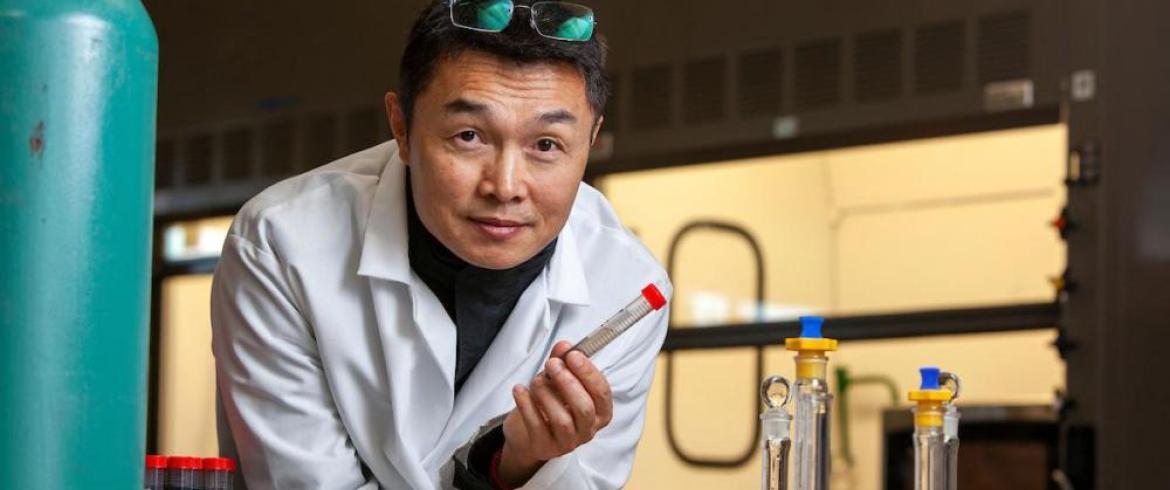
Researchers at the FAMU-FSU College of Engineering have discovered a new technique that uses microwave technology to synthesize fertilizer for agriculture production. The process makes the fertilizer more efficient and better for the environment.
Their work was recently published in Polymer Testing, an open-access scientific journal.
Gang Chen, a civil and environmental professor at the college, and his team are using the new technology to improve the performance of biochar-hydrogel composites. Biochar is a cost-effective product used for soil fertility. When combined with the hydrogel, the product absorbs water and fertilizes the soil. By adding the microwave processing technique, the researchers were able to improve the effectiveness of the composite by 20 percent.
“The microwave-mediated polymerization technique we are using heats the material and optimizes its structure,” Chen said. “The process is cost-effective, better for the environment, and greatly improves the performance of the material.”
Superabsorbent hydrogels are widely used in agricultural production to improve the efficiency of conventional fertilizers. They enhance water and fertilizer retention in soil. Although useful in the industry, they are made from organic solvents that can be harmful to the environment. Wide applications of these types of hydrogels can be costly as well, and the researchers hope the new cost-effective technology will encourage industry to use the more environmentally friendly product.
“The exciting feature of this research is we are turning agricultural waste into useful materials that will likely boost agricultural production,” Simeng Li, a researcher on the project, said. “This technique has the potential to save energy and lower production cost as well as being better for the environment.”
Based on the results of cost-benefit analysis, the researchers expect that microwave-assisted products will help make agricultural production more efficient and more cost-effective in the future. The enhanced product’s ability to absorb water may help combat water shortages in some arid areas of the world.
“There are promising implications in agricultural practice and the process may solve difficulties we are facing around the world,” Yudi Wu, a researcher on the project, said. “We are very excited when we got the test results and hope the technology can contribute to food production growth around the world.”
Chen’s research group features the work of current and former graduate students from the FAMU-FSU College of Engineering. Yudi Wu is a doctoral candidate at the college, while Colten Brickler recently graduated with a master’s degree.
“This research is very exciting to me because we took material that would otherwise be land-filled to create a product that provides benefit to the soil,” Brickler said. “At a relatively low cost, this is a sustainable practice that will protect our environment.”
The students are working closely with Simeng Li, who graduated in 2019 with a doctorate and is now working as an assistant professor at California State Polytechnic University.
“Dr. Li has set an excellent example for fellow students on how to be successful in academia,” Chen said. “The students working on this project are all very talented and hardworking.”
The research is supported by a grant from the National Institute of Food and Agriculture to Florida A&M University and the National Science Foundation.
